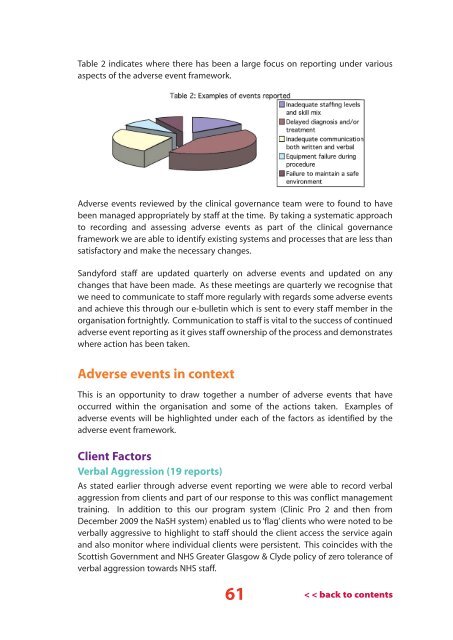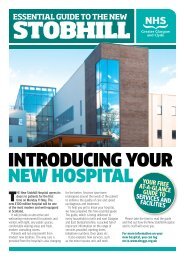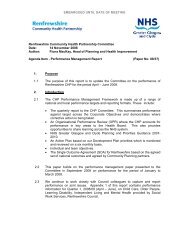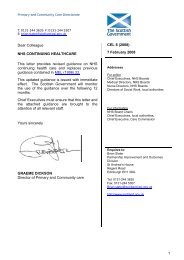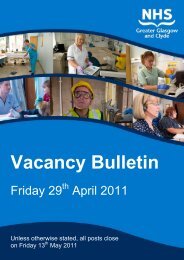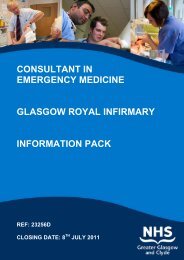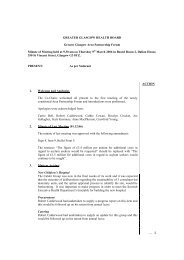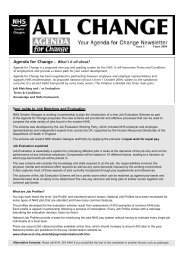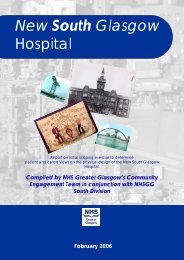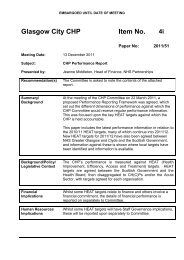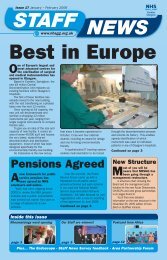Annual Report and Clinical Governance Report 2008 to 2009
Annual Report and Clinical Governance Report 2008 to 2009
Annual Report and Clinical Governance Report 2008 to 2009
Create successful ePaper yourself
Turn your PDF publications into a flip-book with our unique Google optimized e-Paper software.
Table 2 indicates where there has been a large focus on reporting under various<br />
aspects of the adverse event framework.<br />
Adverse events reviewed by the clinical governance team were <strong>to</strong> found <strong>to</strong> have<br />
been managed appropriately by staff at the time. By taking a systematic approach<br />
<strong>to</strong> recording <strong>and</strong> assessing adverse events as part of the clinical governance<br />
framework we are able <strong>to</strong> identify existing systems <strong>and</strong> processes that are less than<br />
satisfac<strong>to</strong>ry <strong>and</strong> make the necessary changes.<br />
S<strong>and</strong>yford staff are updated quarterly on adverse events <strong>and</strong> updated on any<br />
changes that have been made. As these meetings are quarterly we recognise that<br />
we need <strong>to</strong> communicate <strong>to</strong> staff more regularly with regards some adverse events<br />
<strong>and</strong> achieve this through our e-bulletin which is sent <strong>to</strong> every staff member in the<br />
organisation fortnightly. Communication <strong>to</strong> staff is vital <strong>to</strong> the success of continued<br />
adverse event reporting as it gives staff ownership of the process <strong>and</strong> demonstrates<br />
where action has been taken.<br />
Adverse events in context<br />
This is an opportunity <strong>to</strong> draw <strong>to</strong>gether a number of adverse events that have<br />
occurred within the organisation <strong>and</strong> some of the actions taken. Examples of<br />
adverse events will be highlighted under each of the fac<strong>to</strong>rs as identified by the<br />
adverse event framework.<br />
Client Fac<strong>to</strong>rs<br />
Verbal Aggression (19 reports)<br />
As stated earlier through adverse event reporting we were able <strong>to</strong> record verbal<br />
aggression from clients <strong>and</strong> part of our response <strong>to</strong> this was conflict management<br />
training. In addition <strong>to</strong> this our program system (Clinic Pro 2 <strong>and</strong> then from<br />
December <strong>2009</strong> the NaSH system) enabled us <strong>to</strong> ‘flag’ clients who were noted <strong>to</strong> be<br />
verbally aggressive <strong>to</strong> highlight <strong>to</strong> staff should the client access the service again<br />
<strong>and</strong> also moni<strong>to</strong>r where individual clients were persistent. This coincides with the<br />
Scottish Government <strong>and</strong> NHS Greater Glasgow & Clyde policy of zero <strong>to</strong>lerance of<br />
verbal aggression <strong>to</strong>wards NHS staff.<br />
61 < < back <strong>to</strong> contents


